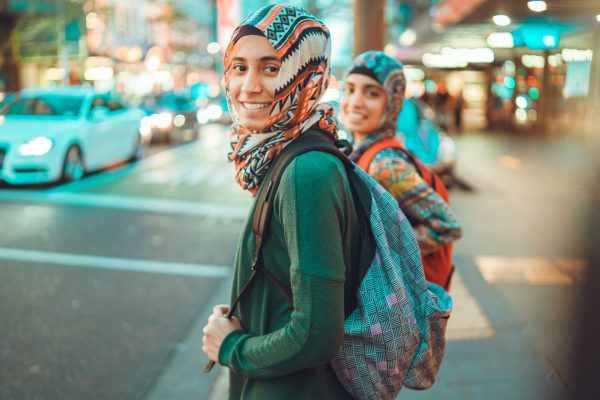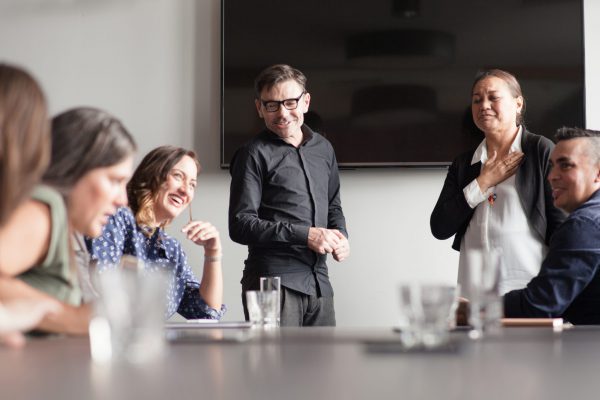Social structures and values
-
Structures
The structures of power used to govern Aotearoa New Zealand are based on Western European norms. Participants shared the need to redesign and re-build structures to reflect an equitable power balance for everyone's full participation in Aotearoa. Participants emphasised collective responsibility and the need for leadership to start the process and to mobilise from the ground up.
Caring for everyone in NZ is how we have a place in NZ. This is also about redistribution of resources and also about power such as constitutional transformation, as Moana Jackson talks about – total restructure of power of NZ.
-
Caring for everyone in NZ is how we have a place in NZ. This is also about redistribution of resources and also about power such as constitutional transformation, as Moana Jackson talks about – total restructure of power of NZ.
-
It has to come from 1: for the leaders of the country or of the city have to be a role model, or even share the idea that we are not that different, we are just people. 2. From young, when you are born, with parents. If people share a similar understanding of how to treat people, then these incidents will be less.
-
I feel like I’m coming to a new country, there should be no boundaries, we should be one. For example, if I’m non-veg, and you’re veg. So god made us. We divided ourselves into male and female. Then we divided ourselves into countries. Then divided into states, then even divided food into veg and non-veg. Humans are very good at divided [sic]. I would say if people came to accept, we would have less dividing into groups.
-
I suppose, institutions. That would include the institution of marriage, government, religion, of family. Collectively, they’re collectively responsible. Imagine there are no countries, no flights, no war.
-
Removing societal barriers to my full participation.
-
The constructs in NZ came from the people who colonised NZ. They were made in the West, and set up here. Then Covid came in and tore some of those constructs down. They’re weak and wobbly now. It’s all over the globe, the giving permission for other voices to give a global voice and move forward. It’s an opportunity.
-
To me it’s the difference between performative culture and deep thinking. We have made some gains, but they do tend to be performative. Shallow. It needs to be about the deep thinking to really have the benefit.
-
The break up of Western norms, which probably requires a radical reworking of the global order.
-
Talking about white supremacy. I had a stint over in America and white people have a lot of privilege, whether you go for a job, or walk down the street, and walk in the store – the white person is free, but the black person is watched. Equality and equity is scary for the white person because they lose that automatic hand up.
-
We are not post-colonization. There is intergenerational trauma that is passed down through DNA. Why don’t we, as white people, give up our roles in the front rows.
-
I was really interested in coming to this [conversation] because I do see a real lack of what life is about. Society is built on rotten values, I think. A system that’s broken. It’s not serving anybody – it’s seeing [the system is helping] like 1%. I’m just angry about it. Like what happened in CCH. And the state of the world. I want more for the world. The service chaos – there’s so much money – money put in these systems, but it doesn’t trickle down to the people.
-
Often there are systemic constraints. My supervisor told me why do you think qualities are like this, if the start point of dehumanisation, the start point is oppression, how far can we grow outside of it. How can you grow within a system if it’s the system that confines you.
-
-
Value base / Social values
There are aspects of ‘kiwi culture’ that can be harmful. Participants shared how the shame attached to asking for help can isolate and decrease opportunities to build relationships. Participants expressed the need for intergenerational learning around the importance of shared values. The impact of Covid 19 was seen as an opportunity to consider how society could change for the better.
I think there’s a lot of shame attached to asking for help.Society attaches shame. Again, it’s this idea of a kiwi culture – no. 8 wire, get it done, settler mentality – that’s a construct of our history, colonized culture. I belong here, but people who choose to come here – they are excluded from that pull-yourself-up-by-the-bootstraps culture.
-
I think there’s a lot of shame attached to asking for help.Society attaches shame. Again, it’s this idea of a kiwi culture – no. 8 wire, get it done, settler mentality – that’s a construct of our history, colonized culture. I belong here, but people who choose to come here – they are excluded from that pull-yourself-up-by-the-bootstraps culture.
-
I feel like NZ is quite a laid back culture and due to this, maybe, things aren’t done at the pace they should be, so I think there should be deadlines in place which makes people do what they need to.
-
Hard - the dominant mainstream "kiwi psyche" e.g. valuing sport highly above many other things.
-
I want an interesting, diverse society but do believe there has to be shared values for it work.
-
A stronger shared sense to what we are trying to achieve as a society.
-
I think it is a cultural thing that our white friends don’t invite me over and we don’t really invite them over either. Whereas many cultures around the world invite people in [to their homes]. I think it’s a great weakness of western culture that it has become so individualized.
-
[being with parents during lockdown] As kids, we learn from them. We start to realize, it’s hard to judge everything back home in the context of here in New Zealand. Family constructs really matter, there are very familiar ideas that are not entrenched in NZ.
-
In my missionary school, we had a subject called moral science. It was just one day a week. That contributed to at least 30 to 40% of what I am today. It helps me connect to people, it helps me love people. The school I studied in, the Fathers and Sisters used the preventive system of education. They taught values. Values are very important at the end of the day. Like gaining skills is important, but gaining values is very important, and that contributes to my development
-
Now my parents say they learn a lot from me. My mum and dad were very orthodox, not very open. I made them embrace new things, made them more open. I think that’s what youngsters should do, I think they can open up their parents.
-
With institutionalised racism, you’ve got to change systems. There’s one model I have which one of the philanthropic organisations in the States came up with. Mental attitude, policy changes, power dynamics. The way we relate to each other, resources distributed more equally. All those things need to change. How can we make everything happen at once? No one has started. These conversations are a start. It’s about changing attitudes.
-
Covid has shown us how wonderful we can be. I heard a saying that God has stood back and seen what you’ve done to the world. There’s still time for us to do something for this world that we’ve destroyed. You can have all the money in the world, it won’t save you if you have Covid. How do we build back better a more human world?
-
-
Worldview
Participants identified the dominant worldview as materialistic and consumerist and spoke about how it dividesd and disconnects people. Participants wanted to see more awareness of alternative worldviews like the Māori worldview, representing Aotearoa New Zealand's diversity. Participants recognised the importance of understanding why movements like Me Too and Black Lives Matter occur and why they need to keep them from turning into money-making ventures.
Your world view – you must look a certain way. That’s just ingrained in people, it's how they’ve grown up. Whenever there is an awakening about matters (e.g. Black Lives Matter, the Me-Too Movement). Losing the essence of what things are about, without corporatizing and commercial agendas.
-
Your world view – you must look a certain way. That’s just ingrained in people, it's how they’ve grown up. Whenever there is an awakening about matters (e.g. Black Lives Matter, the Me-Too Movement). Losing the essence of what things are about, without corporatizing and commercial agendas.
-
Utilising ancient wisdom in the modern world.
-
Traditional was tino rangatiratanga, introduced was kāwanatanga. In my understanding, our partners, Tangata Tiriti are non-Māori who live under Tiriti, have distinct roles and tangata whenua have distinct roles.
-





